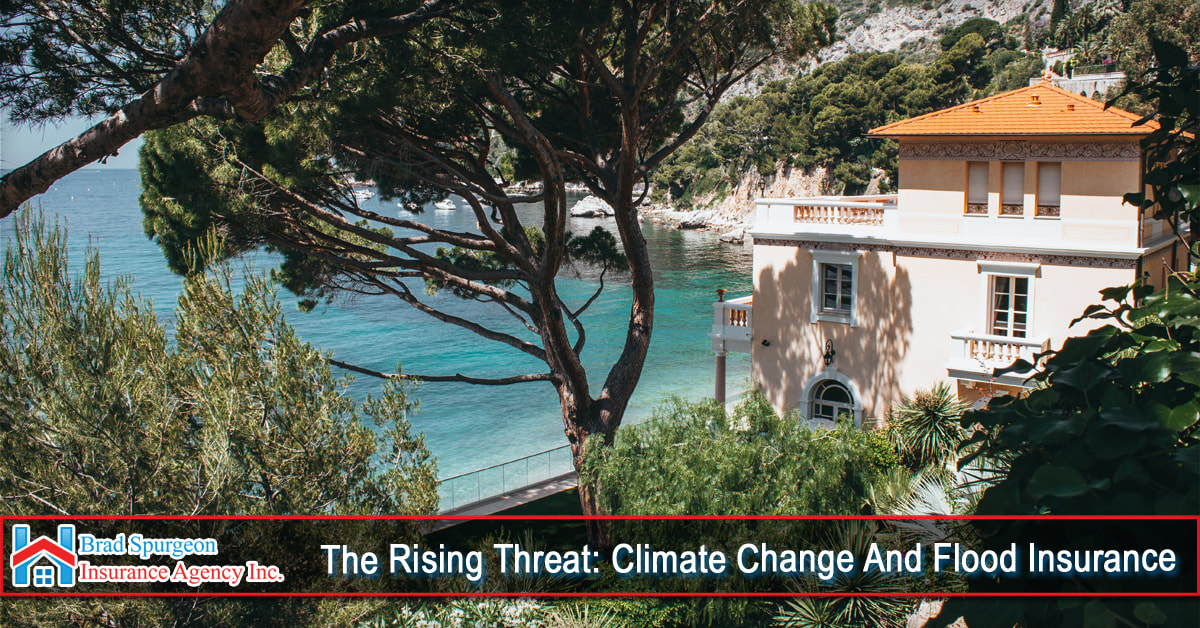Climate change is causing significant shifts in weather patterns, resulting in more intense and frequent rainfall, storms, and hurricanes. Some key factors contributing to the rising flood risk include:
- Sea-Level Rise: The warming of the planet causes polar ice caps and glaciers to melt, leading to higher sea levels. Rising sea levels increase the risk of coastal and inland flooding.
- Increased Precipitation: Climate change can lead to more intense rainfall events, increasing the likelihood of flash floods and river flooding.
- Storm Surge: More powerful storms, fueled by warmer ocean waters, can generate larger storm surges, which can inundate coastal areas.
- Coastal Erosion: As sea levels rise, coastal erosion becomes more severe, resulting in the loss of land and the increased vulnerability of coastal communities to flooding.
The Role of Flood Insurance:
Flood insurance plays a vital role in mitigating the financial losses associated with flood-related damage. Here are key points to consider:
- Standard Homeowners Insurance Excludes Floods: Many homeowners mistakenly believe that their standard homeowners insurance policy covers flood damage. In reality, it typically excludes flood-related losses. To protect your home from flooding, you need a separate flood insurance policy.
- National Flood Insurance Program (NFIP): The NFIP is a federal program that provides flood insurance to property owners, renters, and businesses in participating communities. It offers coverage for building structure and contents.
- Private Flood Insurance: In addition to the NFIP, private insurers now offer flood insurance policies with varying coverage options. These policies may provide more extensive coverage and competitive rates, so it's essential to explore your options.
- Lender Requirements: If you live in a high-risk flood zone, your mortgage lender may require you to have flood insurance as a condition of the loan. Even if it's not mandatory, having flood insurance is a wise choice to protect your investment.
- Mitigation Measures: Some communities participate in floodplain management programs that can lead to reduced flood insurance premiums for property owners who take steps to mitigate flood risk.
Conclusion:
The threat of climate change and its impact on flooding is a growing concern for homeowners and communities worldwide. To safeguard your home and assets, it's crucial to understand the role of flood insurance in mitigating the financial consequences of flood-related damage. Whether through the NFIP or private insurers, obtaining flood insurance is a proactive step in adapting to the changing climate and protecting your property from the rising threat of floods. Don't wait until the next flood event—take action now to secure the coverage you need.
At Brad Spurgeon Insurance Agency Inc., we aim to provide comprehensive insurance policies that make your life easier. We want to help you get insurance that fits your needs. You can get more information about our products and services by calling our agency at (409) 945-4746. Get your free quote today by CLICKING HERE.
Disclaimer: The information presented in this blog is intended for informational purposes only and should not be considered as professional advice. It is crucial to consult with a qualified insurance agent or professional for personalized advice tailored to your specific circumstances. They can provide expert guidance and help you make informed decisions regarding your insurance needs.

